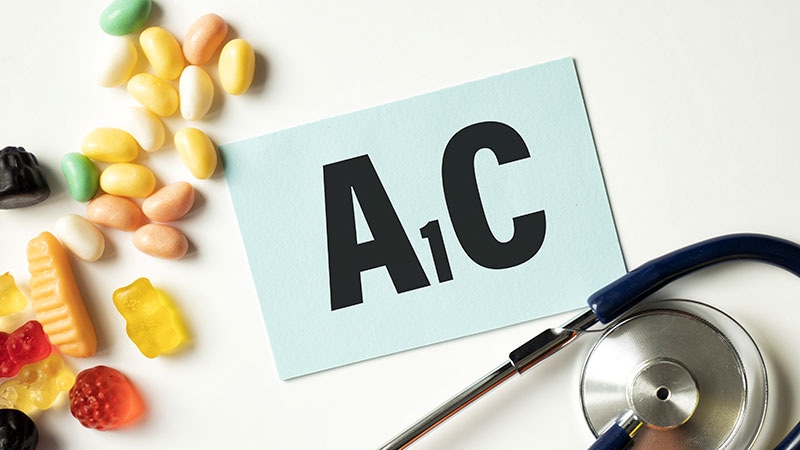Centrala begrepp
Lack of awareness of A1c levels among US adults with diabetes poses risks to long-term health outcomes and highlights the importance of patient education and communication between healthcare providers and patients.
Sammanfattning
The study discussed the lack of awareness of A1c levels among US adults with diabetes and its implications for long-term health outcomes. It emphasized the importance of patient education and communication between healthcare providers and patients to improve diabetes management. The content covered key takeaways, why the issue matters, study design, key results, limitations, and disclosures.
Key Takeaways
22% of US adults with diabetes were unaware of their A1c levels.
Sociodemographic factors like income, education, and race were associated with lack of awareness.
Patients with better knowledge of their A1c levels experience better diabetes management.
Why This Matters
Poor glycemic control is linked to various health risks in diabetes.
Patient knowledge of A1c is crucial for self-management.
Better communication between patients and healthcare providers is essential.
Study Design
2723 participants aged 20 or older were included in the study.
A1c concordance was defined as a ≤0.5% difference between self-reported and lab-measured values.
Key Results
22% of participants were unaware of their most recent A1c value.
Lack of awareness was more common among certain demographic groups.
No significant associations were found with age, sex, or insurance status.
Limitations
Small sample size of people with diabetes.
Inability to differentiate between type 1 and type 2 diabetes.
Results may not apply to undiagnosed diabetes patients.
Disclosures
The study did not receive specific funding.
Authors had no relevant financial disclosures.
22% of US Adults With Diabetes Don't Know Their A1c Level
Statistik
22% of US adults reported not knowing their current A1c value.
48% reported an A1c that differed by >0.5% compared with lab-measured values.
9% did not know the A1c target set by their healthcare provider.
The mean self-reported A1c value was 7.2%, and the lab-measured value was 7.4%.
Citat
"Patients' knowledge and understanding of A1C are essential for diabetes self-management."
"The findings suggest that clinicians should evaluate and enhance patients' knowledge of their A1c."
Viktiga insikter från
by Marlene Busk... på www.medscape.com 06-05-2023
https://www.medscape.com/viewarticle/992777
Djupare frågor
How can healthcare providers improve patient education on A1c levels?
Healthcare providers can enhance patient education on A1c levels by implementing various strategies. Firstly, they can utilize clear and simple language when discussing A1c values with patients, avoiding medical jargon that may be confusing. Additionally, providers can use visual aids such as charts or diagrams to help patients better understand the significance of A1c levels and how they relate to diabetes management. Offering educational materials in multiple languages and formats can also improve patient comprehension. Furthermore, regular follow-up appointments to review A1c results and provide personalized feedback can reinforce the importance of monitoring and managing A1c levels.
What are the potential implications of inaccurate self-reporting of A1c values?
Inaccurate self-reporting of A1c values can have significant implications for diabetes management and patient outcomes. If patients underestimate or misreport their A1c levels, healthcare providers may not be able to accurately assess their glycemic control, leading to inappropriate treatment decisions. This can result in delays in adjusting medications or interventions, potentially exacerbating the risk of complications associated with uncontrolled diabetes. Moreover, inaccurate self-reporting can undermine the trust between patients and healthcare providers, hindering effective communication and collaboration in managing the disease.
How does the lack of awareness of A1c levels impact healthcare disparities in diabetes management?
The lack of awareness of A1c levels can exacerbate healthcare disparities in diabetes management, particularly among vulnerable populations. Patients with lower income or education levels may be less likely to know their A1c values, which can lead to suboptimal glycemic control and increased risk of complications. This lack of awareness can further widen existing disparities in access to quality healthcare and resources for diabetes management. Additionally, disparities in A1c awareness can contribute to unequal treatment outcomes and exacerbate health inequities among different racial and ethnic groups. Addressing this lack of awareness through targeted education and support programs is crucial in reducing healthcare disparities in diabetes management.
0
